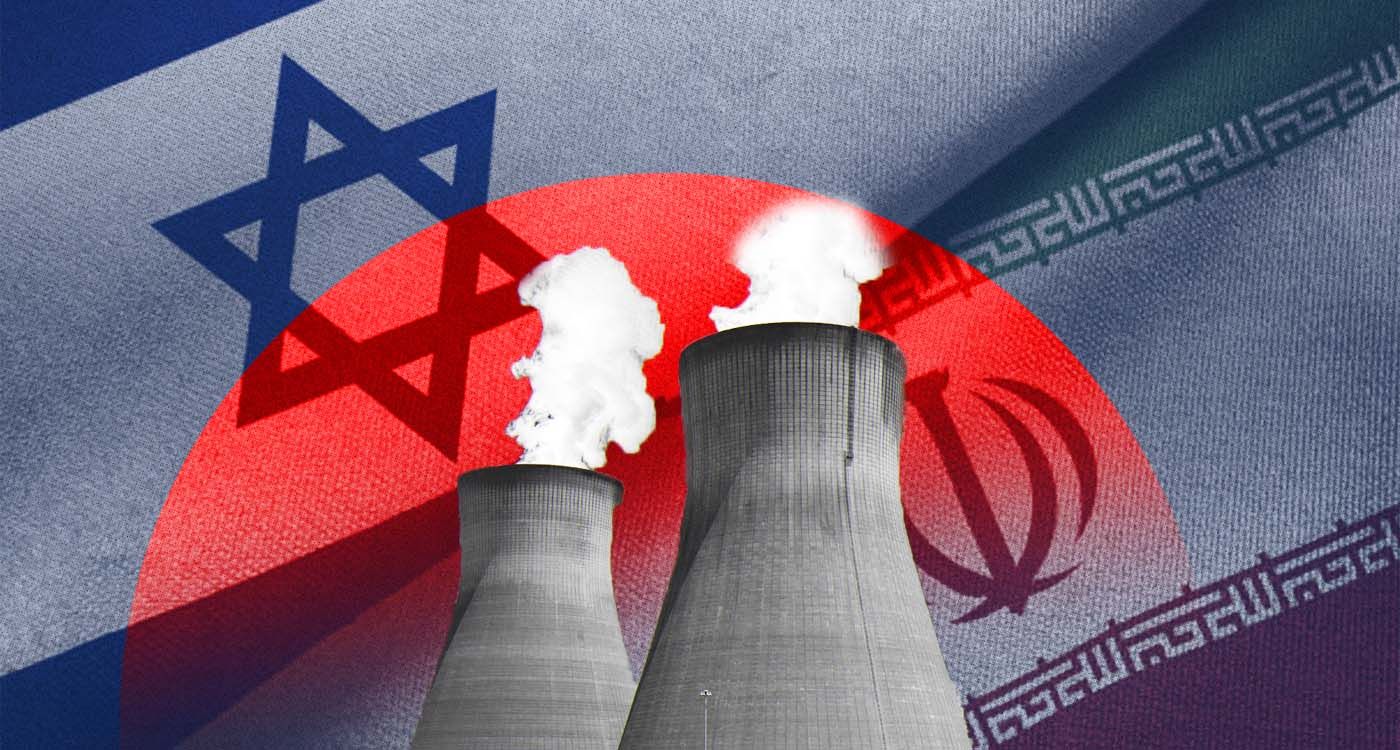- Home
- Middle East
- Genealogy of a War of Choice

©This is Beirut
The launched Israeli war is the latest stage of the strategy that aimed at the progressive dismantling of the “integrated operational platforms” instrumentalized by the Iranian regime. The performance and the audacity of the undertaking raise several questions about the future geopolitical and geostrategic evolutions after the earthquake actuated by the Israeli counterstrategy and its transformative impact. The neat distinction set by the Israeli prime minister between the destruction of the murderous political dystopia, represented by the Islamic regime, and the prospects of peace-making with the Iranian people, predicated on the amity that historically united the two peoples, was quite compelling and sets the road for the impending peace treaty in scope.
The systematic unraveling of the Iranian strategy intertwines with the concomitant aspiration to peace and normalization flaunted by the Israeli war cabinet. The pending Palestinian issues are to be reframed on the very basis of the emerging geostrategic facts and the need for a new narrative and readiness to reengage in negotiations to finalize the forthcoming peace treaty. The transforming geopolitical landscape accounts for the discrepancies between the US and Israel regarding the nuclear negotiations and their opportunity. The endless maneuvering of the Iranian regime has led Israel to opt out of the negotiation scenario in favor of a highly elaborate war scenario. This retrospective can be very helpful to understand the circuitous road that led to the war of choice.
The US-Iranian negotiations were, so far, oscillating between a self-fulfilling prophecy and the deliberate obfuscations driven by a decaying religious autocracy fighting for its survival while its legitimacy is questioned by large Iranian constituencies. The US was doing its best to convert the dubious dispositions of the unraveling dictatorship on the basis of a transactional deal that overlooks the ideological restrictions and the battered strategic mortgages.
The terms of negotiations are inherently skewed and disruptive, since they have failed to evolve the necessary consensus that enables the parties to engage in a constructive and cumulative course. The Iranian is determined to impose a unilateral agenda based on a discretionary uranium enrichment scenario and an adamant opposition to the normalization of its international posturing, let alone its domestic liberalization agenda. This curtailed version of negotiations puts at stake the likelihood of a sustainable normalization and a hypothetical peace process throughout a combusted Middle East.
The negotiation script speaks volumes about the questionable motivations of a dictatorial regime, which has no other objectives but its survival and the pursuit of its imperial strategy. It’s obvious that practicalities are not enough to uphold long-term peace-making and geopolitical stabilization. The parties are at loggerheads, and transactional deals are not enough to steady the course and elicit alternative political agendas.
While conducting the negotiations, the Iranians were making sure to resume their politics of destabilization in Lebanon and to use its shrinking operational platforms to undermine the new regime in Syria, unleash a wave of random terrorism and reenergized Sunni terrorism, and threaten the Kurdish areas in the Syrian Northeast. Betting on the Trump administration's disinclination towards war, the Iranian regime was forging ahead on its way towards renewed investments in regional conflicts and instigation of instability.
The lingering uncertainties have come to an end, and the strategic facts on the ground were set for an impending war scenario. The destruction of the “integrated operational theaters,” which premised the overall Iranian strategy, is completed; the preemptive strike on the Iranian ballistic missiles and defense infrastructures surrounding the major nuclear sites in the Natanz area and the harrowing estrangement eating at the roots of a bankrupted and murderous dystopia have set the congenial context for the next war.
Aside from the fact that Israel has to bring to its final destination the geostrategic dynamics it ushered, annihilate Iran’s subversive strategy and proceed with geopolitical stabilization and peace making. In other words, none of the pending geopolitical issues between Israel, the Palestinians and the Middle Eastern environment is likely to be tackled outside the new geostrategic scope and its dictates. The October 7 war is a watershed and a defining political moment in the history of the Israeli-Palestinian conflict and its repercussions all along the geopolitical spectrum.
The elimination of the Iranian disparaging factor is at the very core of the Israeli war. The discrepancies between the US and Israeli political agendas have come to a head, whereby the two allies have to set their cards. The US cannot engage in an everlasting and single-handed negotiation, and the Israelis have to leverage their geostrategic achievements to finish off the threats posed by an imperial-driven Iran, which perceives Israel as the ultimate obstacle to its domination strategy.
Realistically, one can hardly see a conciliatory scenario between two countries that diverge on every account. The transactional scenario can hardly outweigh the need for a comprehensive approach that may set Israel, Iran and the region on a normalization course. Otherwise, the Trump administration has to overcome the pitfalls of personal diplomacy and political volunteerism and temper the inflated expectations of deal-making with ideological regimes and their harnessed strategic goals. One can hardly see how war prospects can be avoided when the basics of conflict resolution are not only missing but literally subverted.
A cursory review of the Near Eastern terrain and its adjacent geopolitical platforms testifies to the ambiguities of Iranian politics and their self-defeating courses. They have followed the same script drafted under the Obama administration. Maneuvering all along the negotiation course while advancing their military markers. The tragic episode in Gaza is perpetuating the suffering of the Palestinian civilians and maintaining them under the spell of a criminal dystopia with no chances for a negotiated end to the dilemma of the Israeli and Palestinian hostages controlled by Hamas and its Iranian bankrollers.
Lebanon's disrupted deadlocks are reinstated under the unexpected alliance between Hezbollah and a quixotic and de facto partnership between a corrupt military oligarchy, inexperienced "Palestinist" ideologues and opportunists and a coalition of the Hezbollah-Berri tandem. The Syrian regime is fighting its way to engage the new strategic script and preparing for reconstruction. He has to navigate his course through the convoluted roads of Islamist terrorism, address the imbroglios of ethno-national groups and join the Abrahamic Accords.
The Israeli attack on Iran ushers in a new era, whereby the Israelis are defining the new geostrategic coordinates of the Middle East and readying themselves to deal with the manifold challenges of a new era. None of the conventional paradigms would be helpful in coming to terms with Middle Eastern realities. The Arab state system has to readjust to the emerging realities and engage in peace-making. The downfall of the first Islamist dictatorship puts in question the whole issue of political change in this part of the world.
Read more




Comments